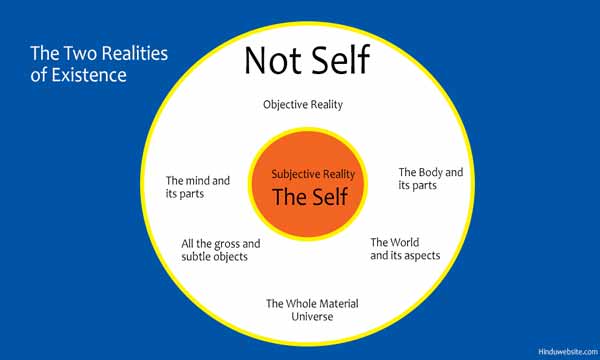4NT = Four NobleTruth
8FP = Noble Eight Fold Path
The Buddha's 4NT-8FP is a very sophisticated Life Problem Solving Technique.
By going through the process systematically, diligently and iteratively, one would be able to resolve any mental problems (btw not physical or those that need serious psychiatric treatments) and live one's life optimally.
The four noble truths (4NT) can be summarized as follows:
*8FP = Noble Eight Fold Paths
The Basic Problem Solving Technique
The 4NT-8FP when transposed as a conventional problem solving technique or model is as follows;
The above is just a model.
Plus point is, it is an objective model and it provide a framework as a guide for anyone to work on.
To put into actual effective practice, it will entail complex, many processes and detail work. The details can be found within the various sutras from the various Buddhist schools. What is needed is to compile the various sets of practices from different schools into one common practice.
Is the above model effective, reasonable and practical?
Views.
One point with the above model and actual progress must be accompanied by actual improvements in the neural network within the brain which can be proven by FMRI imagings and other tests.
The above model works best when the Buddha story is deemed as a myth, where one's effort is focused on the model and the Buddha's core principles.
8FP = Noble Eight Fold Path
The Buddha's 4NT-8FP is a very sophisticated Life Problem Solving Technique.
By going through the process systematically, diligently and iteratively, one would be able to resolve any mental problems (btw not physical or those that need serious psychiatric treatments) and live one's life optimally.
The four noble truths (4NT) can be summarized as follows:
1.The truth of dukkha (suffering, anxiety, stress, angst)
2.The truth of the origin of dukkha
3.The truth of the cessation of dukkha
4.The truth of the path leading to the cessation of dukkha -8FP*
2.The truth of the origin of dukkha
3.The truth of the cessation of dukkha
4.The truth of the path leading to the cessation of dukkha -8FP*
*8FP = Noble Eight Fold Paths
- Right understanding (Samma ditthi)
- Right thought (Samma sankappa)
- Right speech (Samma vaca)
- Right action (Samma kammanta)
- Right livelihood (Samma ajiva)
- Right effort (Samma vayama)
- Right mindfulness (Samma sati)
- Right concentration (Samma samadhi)
The Basic Problem Solving Technique
1. Defining the problem.
2. Generating alternatives.
3. Evaluating and selecting alternatives.
4. Implementing solutions.
5.Feedback and Control
2. Generating alternatives.
3. Evaluating and selecting alternatives.
4. Implementing solutions.
5.Feedback and Control
The 4NT-8FP when transposed as a conventional problem solving technique or model is as follows;
1. Defining the problem.
NT1 -The truth of dukkha (suffering, anxiety, stress)
NT2 -The truth of the origin of dukkha -12 Nidanas
2. Generating alternatives.
NT3 -The truth of the cessation of dukkha -Reverse 12 Nidanas
3. Evaluating and selecting alternatives.
NT4 -The truth of the path leading to the cessation of dukkha -8FP
4. Implementing solutions.
8FP -Right View, Intention, Speech, Action, Livelihood, Effort, Concentration, Mindfulness
F5. Feedback and Control
Right View - Is the problem resolved?
NT1 -The truth of dukkha (suffering, anxiety, stress)
NT2 -The truth of the origin of dukkha -12 Nidanas
2. Generating alternatives.
NT3 -The truth of the cessation of dukkha -Reverse 12 Nidanas
3. Evaluating and selecting alternatives.
NT4 -The truth of the path leading to the cessation of dukkha -8FP
4. Implementing solutions.
8FP -Right View, Intention, Speech, Action, Livelihood, Effort, Concentration, Mindfulness
F5. Feedback and Control
Right View - Is the problem resolved?
Yes, -seek improvements
No, -Goto 1 and repeat process until expected results are achieved.
No, -Goto 1 and repeat process until expected results are achieved.
The above is just a model.
Plus point is, it is an objective model and it provide a framework as a guide for anyone to work on.
To put into actual effective practice, it will entail complex, many processes and detail work. The details can be found within the various sutras from the various Buddhist schools. What is needed is to compile the various sets of practices from different schools into one common practice.
Is the above model effective, reasonable and practical?
Views.
One point with the above model and actual progress must be accompanied by actual improvements in the neural network within the brain which can be proven by FMRI imagings and other tests.
The above model works best when the Buddha story is deemed as a myth, where one's effort is focused on the model and the Buddha's core principles.

